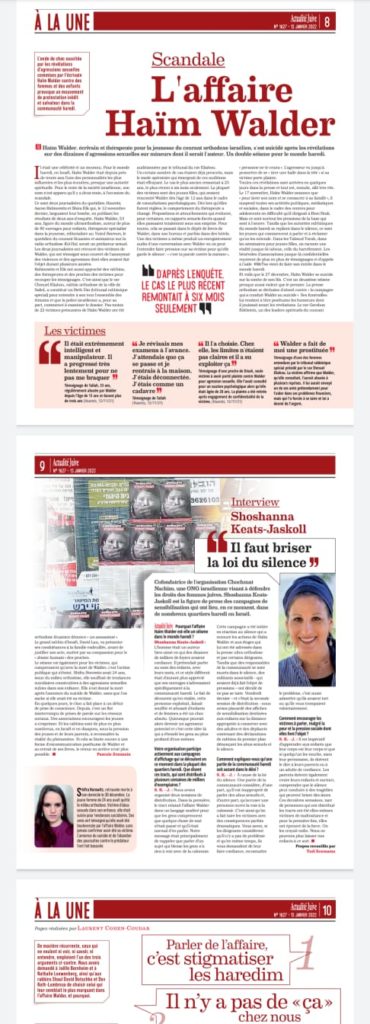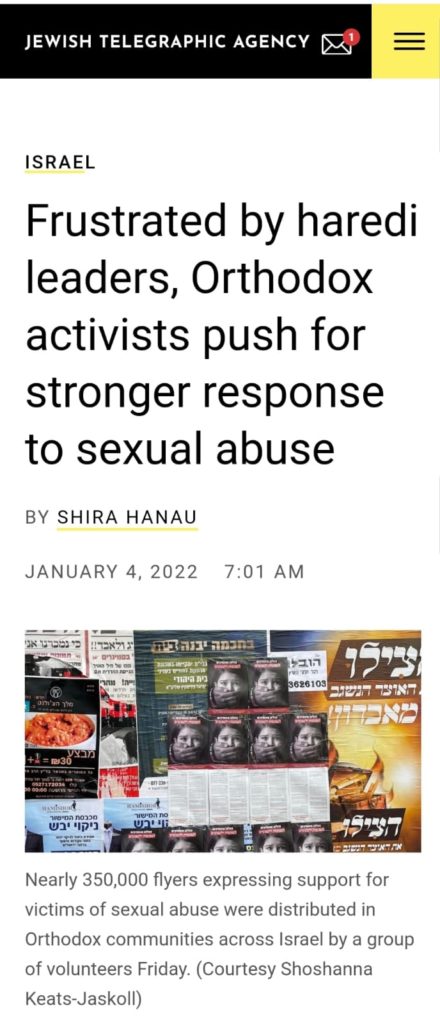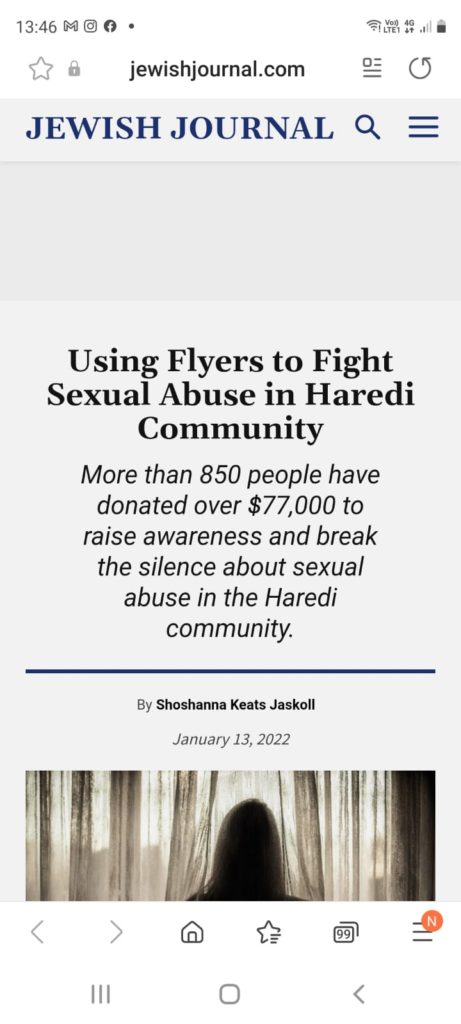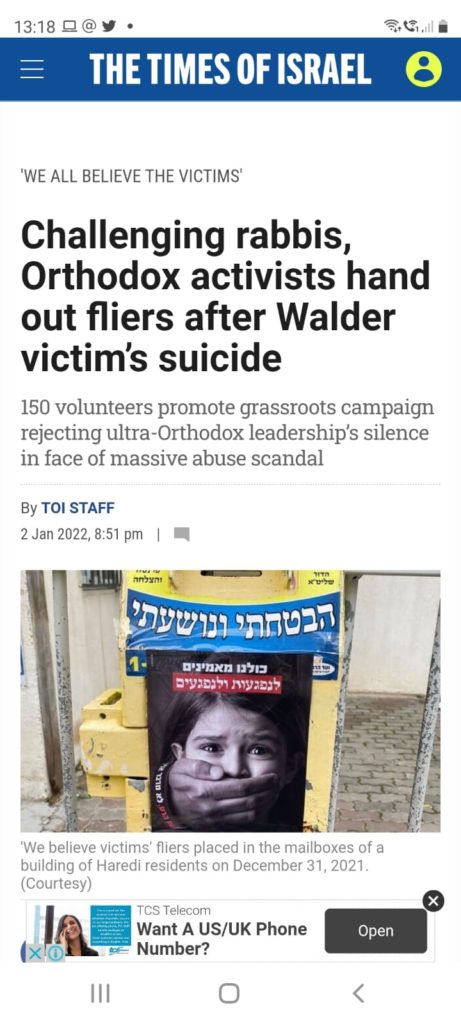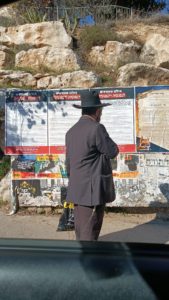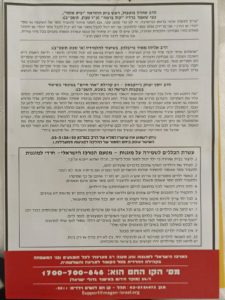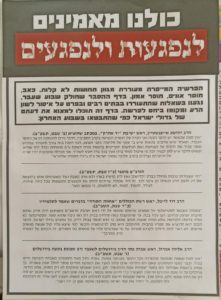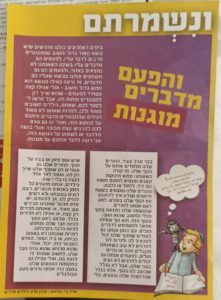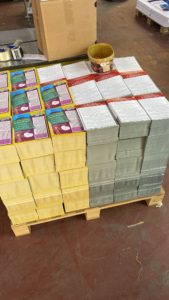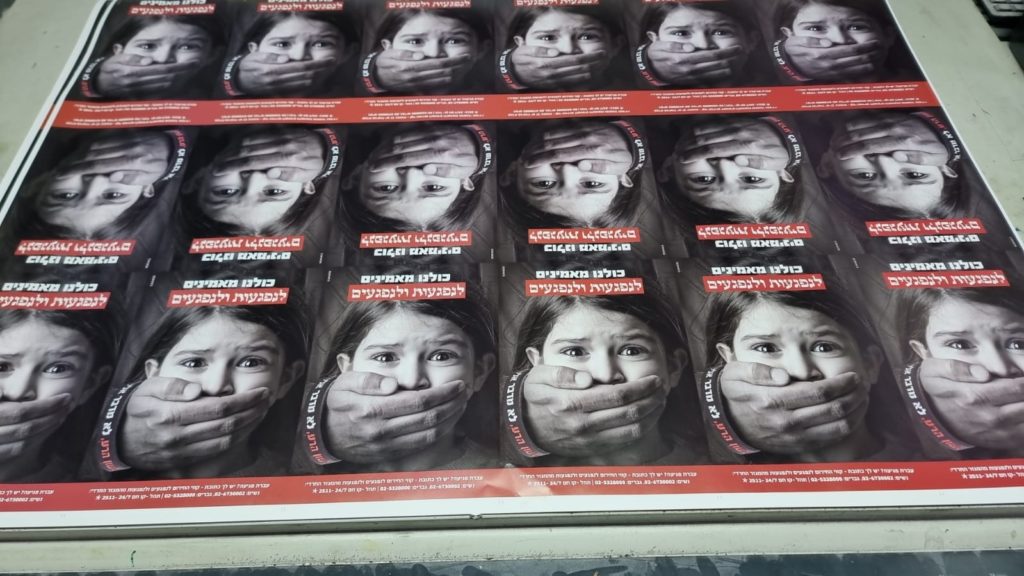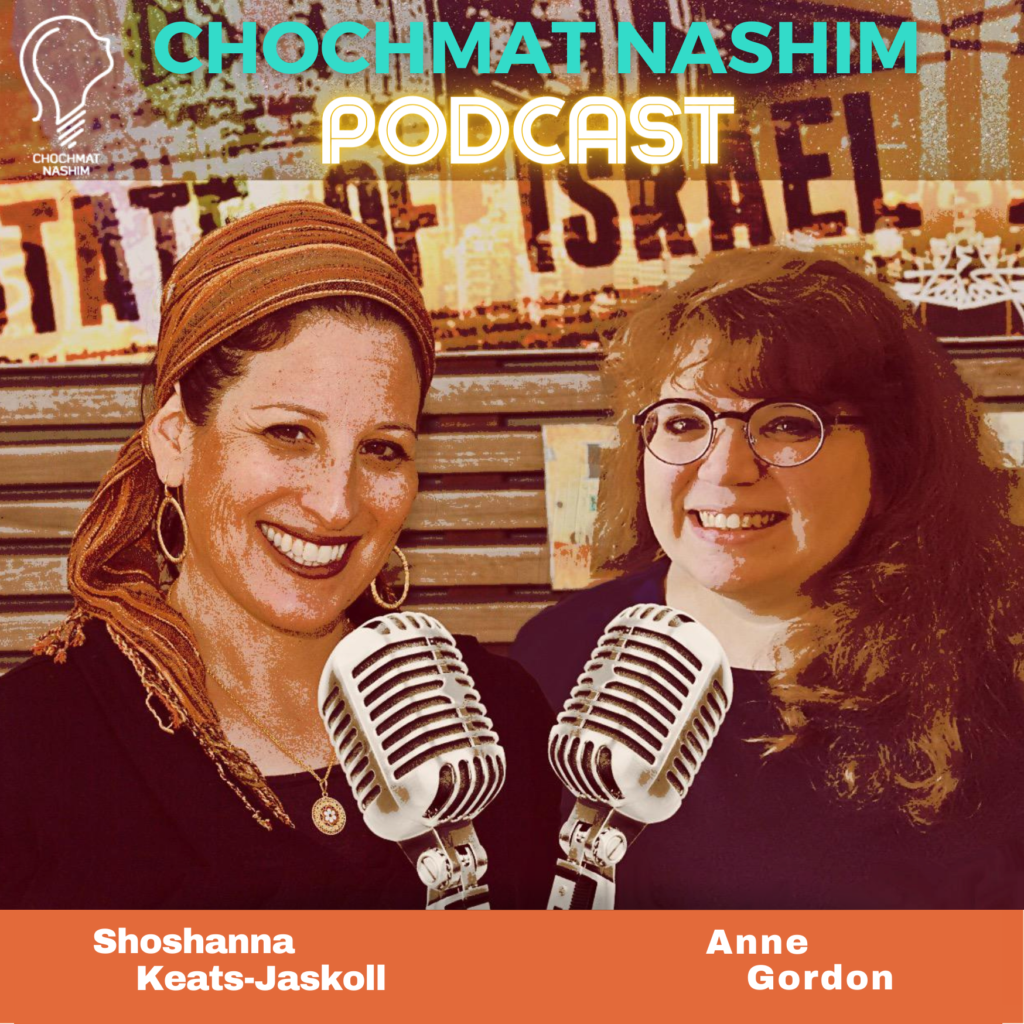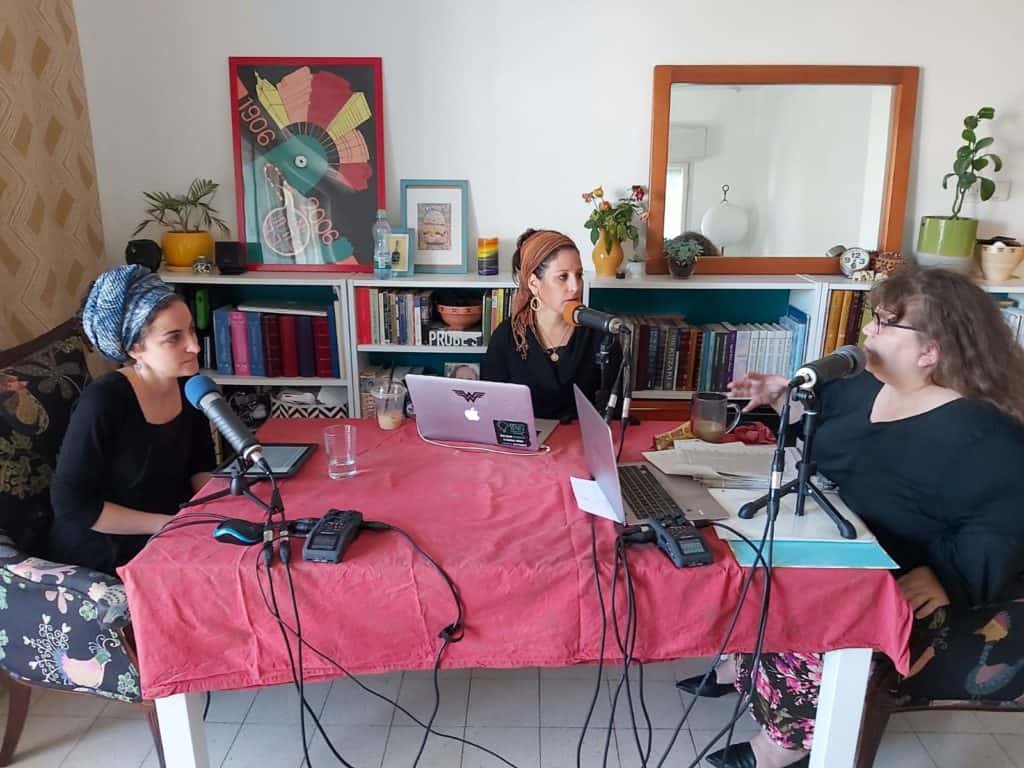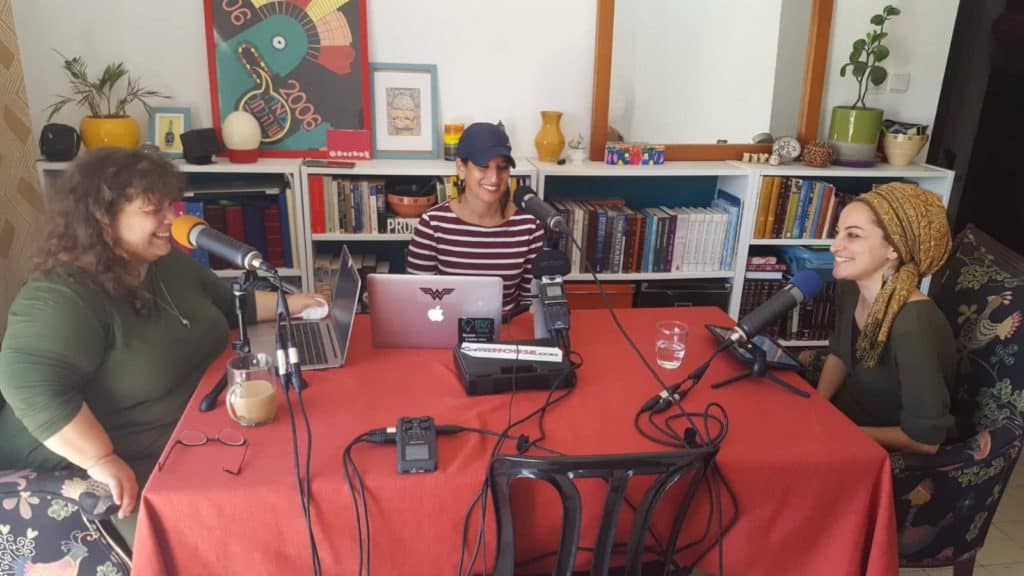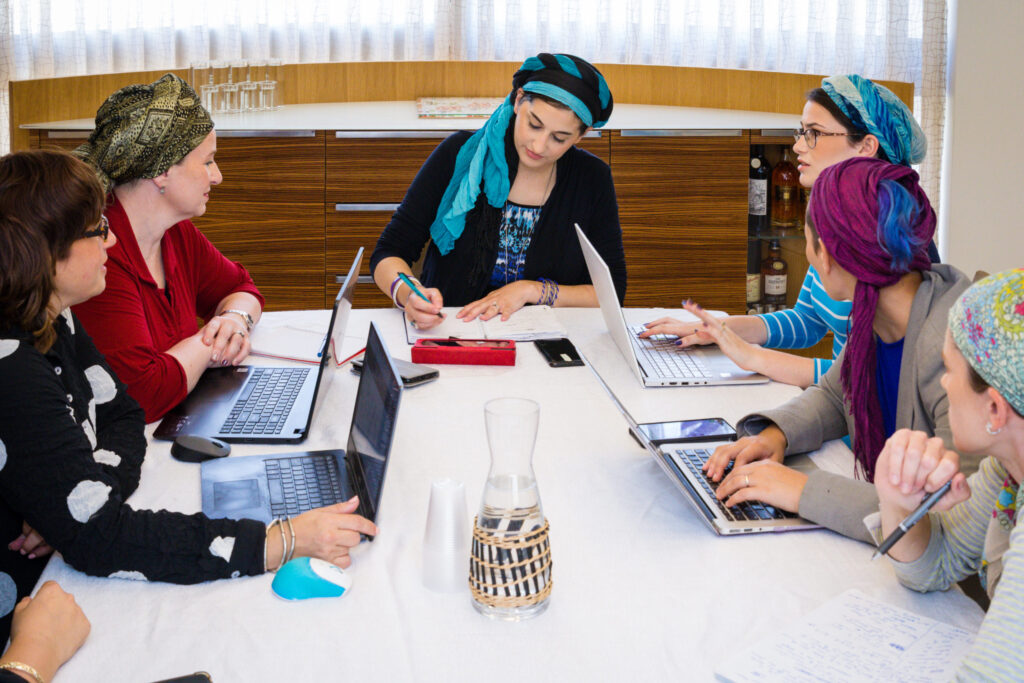The exposure of Chaim Walder, the formerly beloved author and counselor, as a serial sexual abuser and his subsequent suicide sent shockwaves through the Haredi community. But, it was the praise heaped upon him and the claims by leadership that slander had killed him that was too much for the Haredi street to bear.
Devastated at the defense of a predator, and blaming of the victims, a number of Haredi women decided to take action. Chochmat Nashim’s Hila Hassan Lefkowitz was one of them. Together with the other activists, Chochmat Nashim ran a fundraising campaign that funded a revolution.
On one side, an image with a girl, her mouth covered by a male hand with a bracelet that says, “Slander doesn’t speak to me.”
On the other, messages and Daas Torah on the importance of listening to victims of sexual abuse and reporting abusers.
Week 2 – 750,000 fliers and posters were distributed. The first was a double sided page with words of rabbinic support for victims of abuse and in favor of speaking up. The second was geared towards children and addressed the topics of touch and secrets in age appropriate language.
The fliers achieved massive change:
- victims felt able to speak out- they plastered the homes of their abusers with fliers and told their stories to one another
- the abuse hotlines received hundreds of calls from victims and perpetrators seeking help
- Parents who were victims themselves learned the words to talk to their children
- Rabbis spoke out, many for the first time
- Leadership understood that the time of silencing and blaming victims is over
